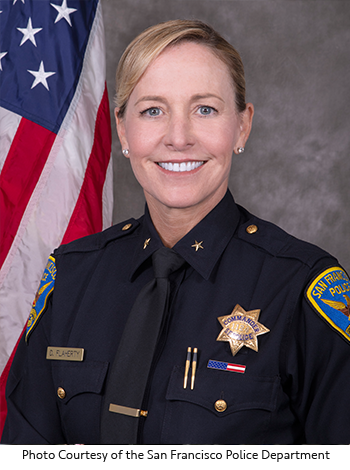MEA’s Denise Flaherty Reports SFPD On Target to Complete Sustainable Police Reforms
By Carol Karimi MEA Member Spotlight: Commander Denise Flaherty
Commander Denise Flaherty talks candidly about police reform within the San Francisco Police Department (SFPD). “It’s been a process of patience, obstacles and perseverance,” explains Flaherty.
“If reform is not approached in an authentic manner, then it just becomes an exercise of checking off boxes.”
Flaherty is one of five police commanders who were appointed by SFPD Police Chief William Scott to serve as executive sponsors overseeing the implementation of 272 recommendations covering five objectives for reform that were issued by the Department of Justice’s Community Oriented Policing Services (COPS) Office in 2016.
The 2016 assessment was conducted at the request of the late Mayor Ed Lee and former SFPD Police Chief Greg Suhr, following a series of events in 2015 that led the city and SFPD to re-examine their policies and practices.
